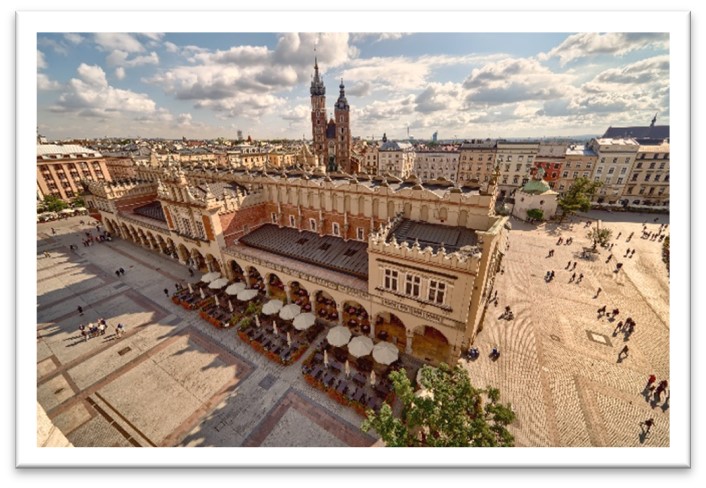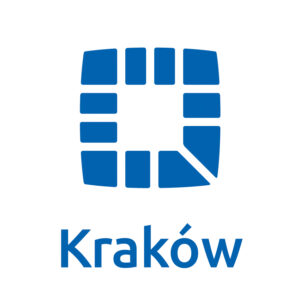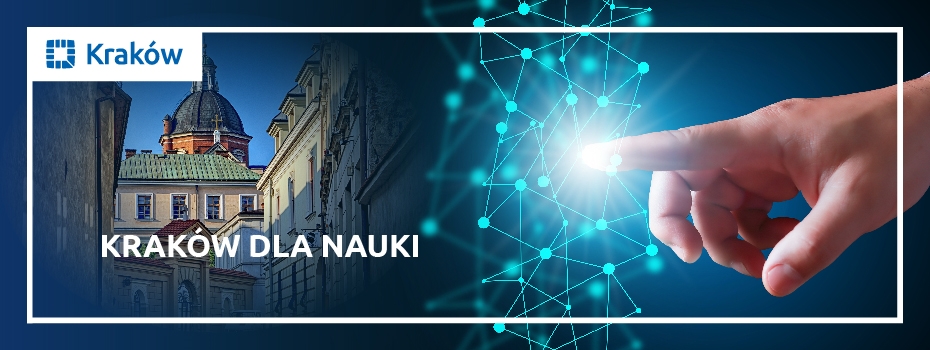Globalization and regionalization in the contemporary world: evolutions and adjustments in a turbulent environment
- About the conference
- Registration
- Scientific Committee
- Organizing Committee
- Deadlines
- Fee
- Partners
- Program
- Hotels
Since 2012 the Department of International Economics organizes cyclic scientific conferences about recent developments in World economics. A special focus is attributed to globalization and regionalization related topics, both in local, regional and global scale. Our conferences are a forum of exchange of ideas and perspectives, as well as an unique opportunity to widen our Department’s research network.
Drawing from the experiences of the previous conferences organized in 2012, 2014, 2016, 2018 and 2021, we would like to invite you to submit your papers and participate in the following scientific gathering. Like in the past, our ambition is that this year’s conference becomes an international forum for exchange of experiences and views as well as a debate on the development of contemporary world economy.
The aim of the conference “Globalization and regionalization in the contemporary world: evolutions and adjustments in a turbulent environment” is the presentation of research results, scientific discussion and broadly understood exchange of views on the latest directions and trends in the field of globalization processes and international economic integration. The conference is therefore an international forum for exchanging experiences and views as well as discussing issues related to the development of the modern world economy. The Program Council of the conference includes representatives of all major academic centers in Poland covering the area of international economic relations with their research, as well as internationally recognized researchers in this field from several European countries. This year, the main axis of consideration will be new challenges for integration and globalization processes resulting from the increase in global uncertainty caused by such events as the COVID-19 pandemic, Russia’s invasion of Ukraine, international trade and political conflicts, and finally the threats related to climate change and other difficult predictable factors.
Thematic blocks:
1. Globalization and regionalization: trends and new phenomena
2. Challenges of the European economic integration
3. Contemporary international economic linkages and cooperation
4. International financial markets
5. Financial stability
6. Sustainable development as well as climate and „green deal” challenges
7. International competitiveness at the macro- and microeconomic levels
8. International business
9. Smart city and metropolitan development
10. Special path of the conference: Rogoff’s Conservative Central Banker – 40 years later
Please register to the conference and submit your abstract (Polish or English) only through this form:
Karolina Klecha-Tylec (Chairwoman, Krakow University of Economics)
António Afonso (ISEG, University of Lisbon)
Adam A. Ambroziak (Warsaw School of Economics)
Arnab Bhattacharjee (Heriot-Watt University & NIESR)
Joanna Bednarz (University of Gdańsk)
Sławomir I. Bukowski (Kazimierz Pulaski University of Technology and Humanities in Radom)
Rodica Crudu (Academy of Economic Studies of Moldova)
Dražen Ćućić (Faculty of Economics in Osijek)
Jérôme Creel (OFCE—Sciences Po, ESCP Europe, Paris)
Elżbieta Czarny (Warsaw School of Economics)
Bogusława Drelich-Skulska (Wroclaw University of Economics and Business)
Małgorzata Dziembała (University of Economics in Katowice)
Etienne Farvaque (University of Lille)
Jan Fidrmuc (University of Lille)
Philipp Harms (Johannes Gutenberg-University Mainz)
Florence Huart (University of Lille)
Małgorzata Janicka (University of Lodz)
Elżbieta Kawecka-Wyrzykowska (Warsaw School of Economics)
Jerzy Menkes (Warsaw School of Economics)
Alexander Mihailov (University of Reading)
Ida Musiałkowska (Poznań University of Economics and Business)
Halina Nakonieczna-Kisiel (University of Szczecin)
Ewa Oziewicz (University of Gdańsk)
Davide Romelli (Trinity College Dublin)
Magdalena Rosińska-Bukowska (University of Lodz)
Marián Šuplata (Matej Bel University in Banská Bystrica)
Krzysztof Wach (Krakow University of Economics)
Małgorzata Żmuda (Cologne Business School)
Organizing committee:
Piotr Stanek (Chairman, Krakow University of Economics)
Agnieszka Pach-Gurgul (Krakow University of Economics)
Jacek Pera
(Krakow University of Economics)
Sylwia Szkołut (Krakow University of Economics)
Conference office:
Anna Cichoń
Department of International Economics,
Rakowicka 27, 31-510 Cracow, Poland
tel.: +48 12 293 53 81, e-mail: conferenceglobalization@uek.krakow.pl, ie.uek.krakow.pl/kmsg/en/department-of-international-economics/
- July 21, 2023 – conference registration and submission of paper’s titles and abstracts
- July 24, 2023 – registration confirmation
- September 6, 2023 – conference fee deadline
- September 6, 2023 – submission of full texts of conference papers
The conference fee of 200 EUR covers the costs of conference materials, lunch breaks and an official dinner (it does not cover accommodation costs, we also do not plan to publish conference proceedings).
Travel and accommodation costs are individually covered by the participants. The participants are asked to arrange the bookings individually.
Please send a wire transfer of 200 EUR at:
Bank: Alior Bank SA
Account Number: 19 2490 0005 0000 4600 4637 5105
Account BIC/SWIFT code: ALBPPLPW
IBAN: PL19249000050000460046375105
Currency: EUR
Account Holder’s Name: Uniwersytet Ekonomiczny w Krakowie
VAT Registration Number: PL6750006346
Address: ul. Rakowicka 27, 31-510 Kraków, Poland
Title: GLOB2023 + first name and surname of the participant
Important: on the invoices the owner of the bank account (sender) will be shown as the purchaser of conference participation service. Natural persons can require to add additional information about the buyer on the invoice. Pro-forma invoices can be issued as well.
Krakow – due to its demographic, economic, social and scientific-cultural strength – ranks second in Poland among cities. It has unique values that are the basis of its economic development and an increase in the quality of life. It has high-quality human capital at its disposal. It is a city people consciously choose as a place to live, work, study, spend free time in a variety of ways. Sustainable development and the ability to meet specific challenges with the skillful use of own resources are the main priorities.
The academic center, with its 650 year old University , is permanently connected with the city and builds an unrepeated resource of knowledge in a unique way. It is the key to competitiveness and innovation not only of Krakow, but also of the entire region. The intensively developing economy based on knowledge is a completely new process in the economic life of the City, which makes it part of the modern economies of the world.
The overriding goal for Krakow is not only to be a modern city but also to be proud of its historical heritage. It aspires to be an open, rich, friendly and safe metropolis, vibrant with culture. Smart management and strengthening the sphere of modern services and the research and development sector are the foundations for the development of Krakow – a city where innovation and effective cooperation between science and business are the focus.
We invite you to visit our website and learn about the possibilities offered by magical Krakow – rooted in tradition, sensitive to everyday life and open to development: www.dlabiznesu.krakow.pl


Fot. Piotr Krochmal
Conference programme
6th International Scientific Conference
Globalization and Regionalization in the Contemporary World: evolutions and adjustments in a turbulent environment
September 21st -22nd, Krakow University of Economics, Building G
Thursday, September 21st
9:30-10:00: Registration and welcome coffee (2nd floor, room 12)
10:00-10:30: Official opening of the conference (room 13)
Stanisław Mazur – Rector of the Krakow University of Economics,
Paweł Lula – Vice Rector for Research,
Karolina Klecha-Tylec – Chair of the Department of International Economics.
10:30-11:30 Plenary session (room 13)
Chairwoman: Marzenna Weresa
Bogusława Drelich-Skulska (University of Economics in Wrocław- UEWr), Sebastian Bobowski (UEWr): Globalne łańcuchy wartości w regionie Azji i Pacyfiku – trendy i wyzwania w obliczu szoków w XXI wieku
Krzysztof Beck (Lazarski University), Aikaterini Karadimitropoulou (University of Piraeus):
Lost in aggregation. European, country, sectoral, and regional factors driving the GVA growth in Europe
11:30-11:45 Coffee break (room 12)
11:45-13:00 Parallel sessions 1
Chairwoman: Irena Pietrzyk (room 13):
Marzenna Weresa (Warsaw School of Economics): Cyfryzacja i zrównoważone gospodarowanie jako nowe obszary badań nad konkurencyjnością: analiza oparta na przeglądzie literatury
Paweł Folfas (Warsaw School of Economics): Państwa G-7 oraz wybrane kraje rozwijające się w globalnych łańcuchach wartości
Ewa Radomska (Pedagogical University of Krakow): Chińskie inwestycje bezpośrednie
w Unii Europejskiej w aspekcie dwustronnych relacji UE-Chiny
Chairman: Etienne Farvaque (room 11):
Special track of the conference: Rogoff’s Conservative Central Banker – 40 years later (1): Introduction + Historical insights and institutional perspectives.
Etienne Farvaque (Université de Lille, France) and Piotr Stanek (Krakow University of Economics): Reflections on 40 years of conservativeness – an introduction to the special track & book project
Davide Romelli (Trinity College University, Dublin, Ireland): Trends in central bank independence
Discussant: Alexander Jung
Alexander Jung (European Central Bank): The quantity theory of money and its role in central banking, 1870-2020
Discussant: Davide Romelli
13:00-14:00: Lunch (room 12)
14:00-15:45: Parallel sessions 2
Chairman: Edward Molendowski (room 13):
Adam A. Ambroziak (Warsaw School of Economics): Pomoc publiczna w UE w dobie przemian i dostosowań
Katarzyna Stabryła-Chudzio (Krakow University of Economics): Znaczenie mechanizmów korekcyjnych w ocenie integracji europejskiej
Magdalena Rosińska-Bukowska (University of Lodz – UŁ), Klaudia Zielińska-Lont (UŁ): Gospodarka międzynarodowa. Wybrane case studies państw z Europy, Ameryk i Azji
Anna Odrobina (Krakow University of Economics): Specyfika internacjonalizacji przedsiębiorstw bazujących na platformizacji na przykładzie GAFAM
Chairman: Andrew Kerner (room 11):
Special track of the conference: Rogoff’s Conservative Central Banker – 40 years later (2): Conservative central banks and their performance.
Christopher Cruz (Grand Valley State University, USA) and Joselito Basilio (Central Bank of the Philippines): Revisiting Rogoff (1985) in the context of Taylor rules: Do conservative central bankers achieve better macroeconomic outcomes?
Discussant: Christine Strong
Christine Strong (Old Dominion University, USA) and Constant Yayi (Texas A&M International University): The Political Economy of Central Bank Independence, Inflation and Economic Growth: Evidence from Africa
Discussant: Andrew Kerner
Cristina Bodea (Michigan State University) and Andrew Kerner (Michigan State University): Can the conservative central banker be a woman?
Discussant: Christopher Cruz
15:45-16:15 Coffee break (room 12)
16:15-18:00 Parallel sessions 3
Chairman: Adam A. Ambroziak (room 13)
Małgorzata Żmuda (Cologne Business School – CBS), Joel Jödicke (CBS), Irina Ervits (CBS):
The Democratic Path to Prosperity: investigating the impact of Democracy on Societal Well-Being and National Competitiveness in Emerging Economies
Jakub Janus (Krakow University of Economics): Post-pandemic monetary policy and deviations from covered interest parity: lessons from Central and Eastern Europe
Valeryia Yersh (Lazarski University): Economic integration and current account deficit sustainability: a comparative study of OECD, EU, and EMU countries
Chairman:Jérôme Creel (room 11):
Special track of the conference: Rogoff’s Conservative Central Banker – 40 years later (3): Case studies and new perspectives on conservativeness.
Maqsood Aslam (University of Poitiers, France), Etienne Farvaque (Université de Lille, France), Kokouvi Kada-Sedode (Université de Lille, France), Piotr Stanek (Krakow University of Economics):
Is trust eroded or strengthened when central banks become conservative? The European Central Bank and the inflation surge of the 2020’s
Discussant: Joanna Bogołębska
Joanna Bogołębska (University of Lodz), Ewa Feder-Sempach (University of Lodz), Ewa Stawasz-Grabowska (University of Lodz), Bojan Pejovic, (University of Montenegro, Podgorica): The Drivers of Central Banks’ demand for gold. Can Gold Reserves Reduce Countries’ Sovereign Credit Risk?
Discussant: Jérôme Creel
Jérôme Creel (OFCE, France), François Geerolf (OFCE, France), Sandrine Levasseur (OFCE, France), Xavier Ragot (OFCE, France), Giovanni Ricco (OFCE, France), Francesco Saraceno (OFCE, Paris):
Policy-mix and inflation: shifting to a new paradigm?
Discussant: Etienne Farvaque
19:00-22:00 Dinner. Restaurant Four, address: Szujskiego st. 4.
Friday, September 22nd
9:00-10:45 Parallel sessions 4:
Chairwoman: Małgorzata Żmuda (room 13):
Waldemar Milewicz (Warsaw School of Economics): Struktura własnościowa i jej konsekwencje dla sektora bankowego w Polsce
Edward Molendowski (Krakow University of Economics – UEK), Wojciech Polan (UEK): Dyplomacja gospodarcza Polski. Ewolucja i aktualny model organizacyjny
Marta Ulbrych (UEK): Efektywność energetyczna jako narzędzie zwiększające bezpieczeństwo energetyczne polskiego przetwórstwa przemysłowego
Agnieszka Pach-Gurgul (UEK): Znaczenie LNG dla bezpieczeństwa energetycznego Unii Europejskiej
Chairman:Louis-Philippe Rochon (room 11):
Special track of the conference: Rogoff’s Conservative Central Banker – 40 years later (4): Case studies and new perspectives on conservativeness.
Guillaume Vallet (Université de Grenoble, France), Louis-Philippe Rochon (Laurentian University, Canada) : Toward a progressive central banker: Rogoff’s model revisited
Discussant: Jakub Janus
Etienne Farvaque (Université de Lille, France) Piotr Stanek (Krakow University of Economics, Poland): Final Reflections
10:45-11:15: Coffee break (room 12)
11:15-13:00 Parallel sessions 5
Chairman: Paweł Folfas (room 13):
Małgorzata Dziembała (University of Economics in Katowice): Rola polityki innowacyjnej
w kreowaniu odporności gospodarek w warunkach niestabilności
Magdalena Śliwińska (Poznań School of Economics and Business): Bariery rozwoju rynków zrównoważonych na przykładzie rynku Sprawiedliwego Handlu.
Izabela Młynarzewska-Borowiec (University of Radom): Bezpośredni i pośredni wpływ sektora ICT na produktywność krajów Unii Europejskiej
Arkadiusz Mroczek (Krakow University of Economics): Odporność i antykruchość systemów miejskich
Special track of the conference: Rogoff’s Conservative Central Banker – 40 years later (5): Networking (room 11)
12:45-13:00: Summary and conclusion of the conference: Karolina Klecha-Tylec, Piotr Stanek (room 13)
13:00-14:00 Farewell Lunch (room 12)
14:45 Meeting for the social event: Visit of the Wieliczka Salt mine (in front of the building G)
16:00 Social event: Visit of the Wieliczka Salt mine


